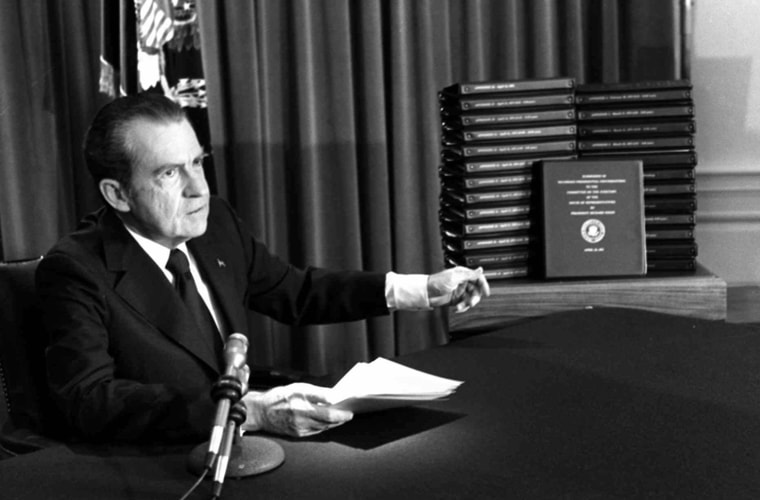For many who don’t remember Richard Nixon’s rise, it’s the Watergate scandal that ultimately ended his second term that has come to define him. But Watergate came at the end of a long career that saw the man from Yorba Linda blaze trails both positive and negative through the American political landscape.
This week, supporters celebrating what would have been Nixon's 100th birthday are working to elevate his reputation as a president and peacemaker, while obscuring or outright ignoring his paranoia, offensive statements, and abuse of power that led to his downfall.
Nixon was one of only two men in U.S. history to win four national elections. A congressman at 33, a senator at 37, and vice president shortly after turning 40, Nixon enjoyed a meteoric rise to the height of American politics before suffering humiliating losses that prompted the media to write his political obituary before his 50th birthday. That obituary turned out to be extraordinarily premature. After many wrote him off, Nixon went on to be elected president—twice.
One former speech writer, Bruce Herschensohn, said Watergate didn't deserve a mention because "that's the way Washington operated."
But as Chuck Todd discussed with msnbc’s Chris Matthews Wednesday morning on The Daily Rundown, Nixon was as influential as any politician in the latter half of the 20th century and to acquire a complete understanding of his impact, you have to look at the full scope of his political life—good parts and bad.
